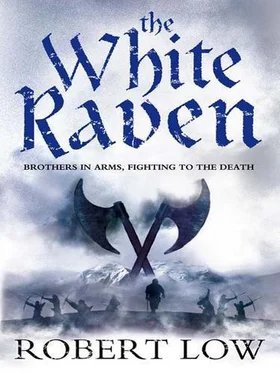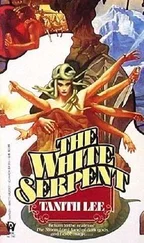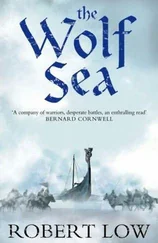Robert Low - The White Raven
Здесь есть возможность читать онлайн «Robert Low - The White Raven» — ознакомительный отрывок электронной книги совершенно бесплатно, а после прочтения отрывка купить полную версию. В некоторых случаях можно слушать аудио, скачать через торрент в формате fb2 и присутствует краткое содержание. Жанр: Исторические приключения, на английском языке. Описание произведения, (предисловие) а так же отзывы посетителей доступны на портале библиотеки ЛибКат.
- Название:The White Raven
- Автор:
- Жанр:
- Год:неизвестен
- ISBN:нет данных
- Рейтинг книги:4 / 5. Голосов: 1
-
Избранное:Добавить в избранное
- Отзывы:
-
Ваша оценка:
- 80
- 1
- 2
- 3
- 4
- 5
The White Raven: краткое содержание, описание и аннотация
Предлагаем к чтению аннотацию, описание, краткое содержание или предисловие (зависит от того, что написал сам автор книги «The White Raven»). Если вы не нашли необходимую информацию о книге — напишите в комментариях, мы постараемся отыскать её.
The White Raven — читать онлайн ознакомительный отрывок
Ниже представлен текст книги, разбитый по страницам. Система сохранения места последней прочитанной страницы, позволяет с удобством читать онлайн бесплатно книгу «The White Raven», без необходимости каждый раз заново искать на чём Вы остановились. Поставьте закладку, и сможете в любой момент перейти на страницу, на которой закончили чтение.
Интервал:
Закладка:
Robert Low
The White Raven
Novgorod , Winter, 972 A.D.
On a crisp day with a grey sky and only a blinding white smear to show where the sun lurked, the prince's executioners cut a good pine pole slightly taller than the height of a man, thin at one end, thick at the other.
The thin end they sharpened and greased, then they took the legs of the face-down woman and roped them by the ankles, pulling them wide apart. A man took a saddle-cloth, placed it on her back then sat on it to keep her still, while another bound each of her wrists with leather thongs, then tied them to two stakes, also wide apart. She screamed blood on to her teeth.
'On this day, in the eighth year of the lordship of Prince Vladimir,' intoned the crier, 'this Metcherak woman was found guilty. .' and so on and so on.
Danica,' muttered Thordis, soft enough so only we heard it. 'Her name is Danica.'
Morning Star, it meant in the tongue of her Slav tribe. There would be no more morning stars for her. The stake was driven up into her while the executioners ignored her shrieks but made sure her white buttocks were decently covered as they hammered and pushed, to preserve her dignity from the droolers in the crowd. The white shift she wore was soon clinging provocatively to her all the same, soaked with her blood.
Impalement is not simple savagery; there is art to it and Vladimir's executioners knew their work.
The sharpened stake was pushed, slowly and with skill up the woman's body. It was, in a Loki joke, a healer's art they used, for they knew how to avoid all the serious soft organs, the lungs and the heart and liver, despite her jerks and screams. There were frequent stops for adjustment, brief panting instructions and advice, one expert to another, as obscenely intimate as if they were all lovers. They stopped only once, to scatter wood shavings on the bloody snow and prevent them slipping in the slush of it.
One slash with a knife helped the point of the stake out through the skin of the upper back on the right side of the spine, proving that the stake had missed her heart; the crowd roared and the dignified, well-dressed worthies of Novgorod's veche nodded their beards in approval as Danica was skewered like an ox on a spit. Still alive, as was proper.
They unroped her, then re-tied her legs together to the foot of the stake to avoid slippage when they raised it — gently, so as not to jolt the body — into a hole, which they packed with earth. It began to feather with new snow as the pole was then strutted with supports — and that was that, everything done according to the law and the' rights of the veche.
Her bound feet offered no support and slowly, agonizingly, her own body-weight dragged her down the pole. It would take three days for the moaning, bleeding woman to die, while the snow turned crimson at her feet.
There was skill there and much to be admired in it as a statement of justice that made even the hardest balk at committing crimes in a city whose people called it Lord Novgorod the Great. All the same, it was difficult to appreciate the full merit of this justice, since I was next in the queue — but I wondered if it was possible to find a price that would make the rulers of Novgorod keep that stake from my own puckering hole.
Would a burial mound with all the silver of the world be enough?
1
Hestreng, Ostergotland, early autumn, 972AD
The day before we were due to bring the horses down, it rained. I stuck my head out the door and, from the way the wind drove it, hissing like snakes from the sea, I knew it would rain for days.
Inside, Thorgunna fed the fire, stirring a cauldron already on it. Elfin-faced and breasted like a fine ship, that was Thorgunna. Dark haired and, as Kvasir put it 'a prow-built woman', she had a way of arching an eyebrow and staring at you with eyes black as old sheep droppings that made most of us wither. Everyone had marvelled at Kvasir marrying her — as Finn said, drunk at the wedding: 'Too long at sea. What does the like of Kvasir Spittle want with a wife? Six months wintering with one of those and you will be begging to be back behind the prow beast.'
Beside her, Ingrid chopped kale, as blonde and slim as Thorgunna was not, her braids bobbing as she shot what she thought were sly looks for Botolf. She was already pupped by him and promised in public.
From Gunnarsgard, the next toft over, Thorgunna was sister to Thordis, who had married Tor Iron-Hand. The sisters had half-shares in Gunnarsgard — an unnatural way to treat a good steading, which should always go to the eldest — and their cousin, Ingrid, lived with them.
Tor had had a good life of it, some said, with three women under his roof. Those who knew better pointed out how that meant three times the trouble. He had wanted to marry Thorgunna as well and so gain the other half of the steading until Kvasir spoke up and brought her to Hestreng, with Ingrid in tow, not long after fetching up here with the rest of us.
'What does it look like out there?' Thorgunna asked me.
'The yard's a lake,' I reported, hunkering down by the fire. 'Throw something special in that pot — everyone will need cheering.'
She snorted. 'No doubt. And no work done for it on a day like this.'
Which was unfair, for there was always work, even indoors. There were two looms that had never been still for weeks as a brace of thrall women wove the panels of wadmal into a striped sail for the Elk. Everyone had sewing, or binding, or leather, or wood to work, even the children.
Still, they circled big Botolf in the pewter dark, demanding stories. There were three older ones, all boys and bairned on the thrall women by the previous owners and two new babes by my own Oathsworn — and one cuckoo from Jarl Brand. The hall rang with the sound of them as the men straggled in for their day meal, grey shapes in a grey day, blowing rain off their noses and shaking out cloaks.
I moved to the high seat, where I wouldn't be bothered, while the hall filled with chatter and the smell of wet wool. The Irisher thrall woman, Aoife, was trying to put her son's chubby arms in a wool tunic and he kept throwing it off again. In the end, she managed it, just as Thorgunna smacked her shoulder and told her to fetch mussels from the store. She left, throwing anxious glances as her boy — Cormac, she called him — crawled towards the deerhounds in the corner.
I sat, hunched in wool and brooding like a black dog, the rune sword curving down from my hands to the earth floor while I stared at the hilt of it and the scratches on it. I had made them, with Short Eldgrim's help, as we staggered back from Attila's howe and the great hoard of silver hidden there; for all I was not good with runes, they were enough for me to find my way back to that secret place.
The deaths and the horror there had resolved me never to go back, yet I had made these marks, as if planning to do just that. Odin's hand, for sure.
I had thrashed and wriggled on the hook of that and found good reason and salted it with plunder to keep the Oathsworn from forcing me back to Atil's howe. Even so, I had always known I would have to lead Kvasir and the others to that cursed place — or give Kvasir the secret of it and let him go alone. I could not do that, either, for we were Oathsworn and my fear of breaking that vow was almost as great as facing the dark of the howe again.
That oath.
We swear to be brothers to each other, bone, blood and steel, on Gungnir, Odin's spear we swear, may he curse us to the Nine Realms and beyond if we break this faith, one to another.
It bound us in chains of god-fear, drove us coldwards and stormwards, goaded us to acts that skalds would sing of — and others best hidden under a stone in the night for the shame of it. Yet, when we stood with our backs to each other and facing all those who were not us, we knew each shoulder that rubbed our own belonged to a man who would die rather than step away from your side.
Читать дальшеИнтервал:
Закладка:
Похожие книги на «The White Raven»
Представляем Вашему вниманию похожие книги на «The White Raven» списком для выбора. Мы отобрали схожую по названию и смыслу литературу в надежде предоставить читателям больше вариантов отыскать новые, интересные, ещё непрочитанные произведения.
Обсуждение, отзывы о книге «The White Raven» и просто собственные мнения читателей. Оставьте ваши комментарии, напишите, что Вы думаете о произведении, его смысле или главных героях. Укажите что конкретно понравилось, а что нет, и почему Вы так считаете.












